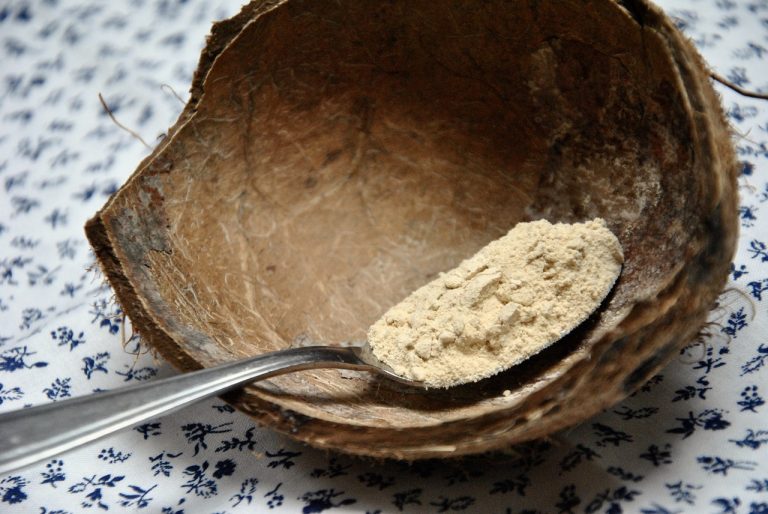Polycystic ovary syndrome is a very complex endocrine disorder that is measured by an increasing number of women around the world. Estimated, even every 10 of the representatives of the fair sex can feel the symptoms of this disease to a greater or lesser degree. The most characteristic symptoms of PCOS are ovarian dysfunction and, as a result, menstrual disorders, infertility, androgenisation with excessive body hair (hirsutism), easy weight gain and weight reduction problems.
Women and PCOS
Many women are not fully satisfied with the classic approach to the treatment of PCOS and seek help in less obvious therapies. Recently, we've found some interesting references to the positive effect of maca on this disease. We've decided to share them with you. We invite you to read the article below!
Promising reports from the world of science
Before we get into the details, we must be honest to say that research into the impact of maca on PCOS has so far been made relatively little. Studies have been carried out on mice, postmenopausal women and rats, but there is not really a study of women with polycystic ovary syndrome. (1) It should also be emphasized that only four studies of postmenopausal women have been carried out. (2) It is not enough that we could announce to the world that we have found a panacea for all the problems of PCOS women. The results, however, were interesting and filled with optimism.
Despite relatively few medical premises, many women have reached for their own hands and experienced an improvement in their health. Let's look at Maca itself and its potential benefits.
What is maca?
Maca plant is a close relative of turnips or radishes and grows high in the Peruvian mountains in extreme weather conditions. There are many varieties, each with a different color. Each of them also has other properties. Fresh can be boiled and mashed, like potatoes. (3) It can also be dried and powdered. It is a popular form used for healing purposes.
The healing value
Maac has been used for ages not only because of its nutritional value, but also because of its healing properties. It is important to remember that, first of all, maca is food, so in fact its overdose is unlikely and does not lead to serious side effects.
Here are the most popular benefits of maca supplementation:
- general protection against the effects of stress
- insomnia treatment, helps you fall asleep
- faster recovery after diseases, infections
- increases metabolism, can help with losing weight, reducing obesity
- improves libido and cures erectile dysfunction
- reduces the risk of developing diabetes
- can relieve the symptoms of arthritis and joint pain
- improve training performance, endurance, strength and muscle mass growth
- raises testosterone levels in men and eliminates hormonal problems in women
- improves cognitive functions, leading to better clarity of mind and perception
Sounds amazing, right? Before you go to the nearest store to order it, remember that there is little scientific evidence to support these theses. Most of what we wrote down here is a subjective feeling of maca users.
How does maca actually work?
It is believed that maca acts on the hypothalamus, the gland that controls many body functions as well as the pituitary gland. The pituitary also controls the adrenal glands, ovaries, testes and thyroid. So you can easily understand where all the suggested benefits come from, because these are all things that affect the hypothalamus and pituitary gland. (4)
Maca is thought to be an adaptogen. This means that it helps to restore the balance or homeostasis of the body without stimulating or inhibiting it. So, if your hypothalamus is a bit lazy, maca will give him the impulse to do better.
Maca and polycystic ovary syndrome
Let's see why so many women suffering from PCOS have reached the maca.
Let us return to the influence of maca on the hypothalamus and pituitary gland. This makes sense because these glands control the menstrual cycle and ovarian stimulation. If we could make them function better, maybe we could normalize our cycles and minimize the effects of PCOS.
However, studies have shown that maca has no significant effect on circulating estrogen, luteinizing hormone, follicle stimulating hormone or testosterone (5). On internet forums, many women have reported an improvement in energy levels, but there have been few reports on improving the hormonal balance.
Maca and PCOS - summary
In conclusion, although the maca's reputation seems to be strengthening in the PCOS community, there is still not much evidence to confirm its beneficial effects.
References
1. http://www.ncbi.nlm.nih.gov/pubmed
2. http://1-in-10.org/miraculous-maca
3. http://en.wikipedia.org/wiki/Lepidium_meyenii
4. http://www.ncbi.nlm.nih.gov/pubmedhealth/PMH0002182/
5. http://examine.com/supplements/Maca/






